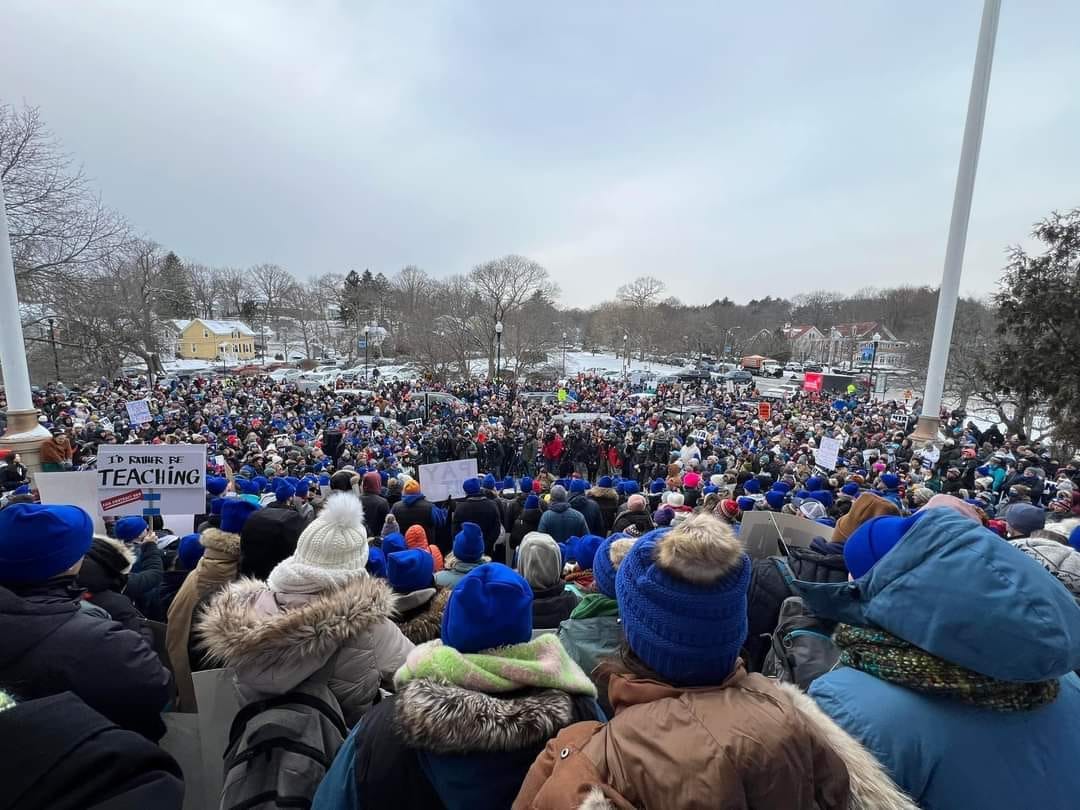Josh Kraft flooded with campaign contributions from execs angry over Wu | Stay at a White Lotus-style resort does not come cheap | Harvard bulking up its financial defenses amid Trump showdown | After teacher strikes, cities and towns struggle to afford big pay increases | Quick hits |
News tips? Story ideas? Email us at sbvanvoorhis@hotmail.com
Labor pains: After cutting deals with striking teachers, local officials across Greater Boston are making school cuts in order to pay for them
Striking teachers have won rich contract deals in suburbs across Greater Boston in a series of illegal walkouts.
They’ve been egged on by the state’s militant teachers union, which has been pushing to legalize such strikes, which are typically barred in the public sector.
But can the towns and cities that agreed to these deals actually afford them? That’s another question.
Given the financial strain local officials are now facing to try and make the numbers work, the answer is a resounding no.
A year after settling a high-profile teachers' strike with a $53 million pay deal, Newton has been debating over how to balance the city’s school’s budget.
Depending on which proposal the City Council approves, the Newton school officials may have to cut anywhere from 16 to more than 28 jobs, the Newton Beacon reports.
In a statement to Contrarian Boston, Newton Mayor Ruthanne Fuller said the cost of living increases for city teachers are “quite manageable” within her proposed $292 million school budget, which also happens to be roughly $4 million less than what school officials have lobbied for.
But future cost of living increases under the teacher pay deal may not be so affordable.
A 3.6 percent rise in teacher pay, which will kick in 15 months from now, “will be more challenging,” Fuller states.
Newton is hardly alone.
Keep reading with a 7-day free trial
Subscribe to Contrarian Boston to keep reading this post and get 7 days of free access to the full post archives.




